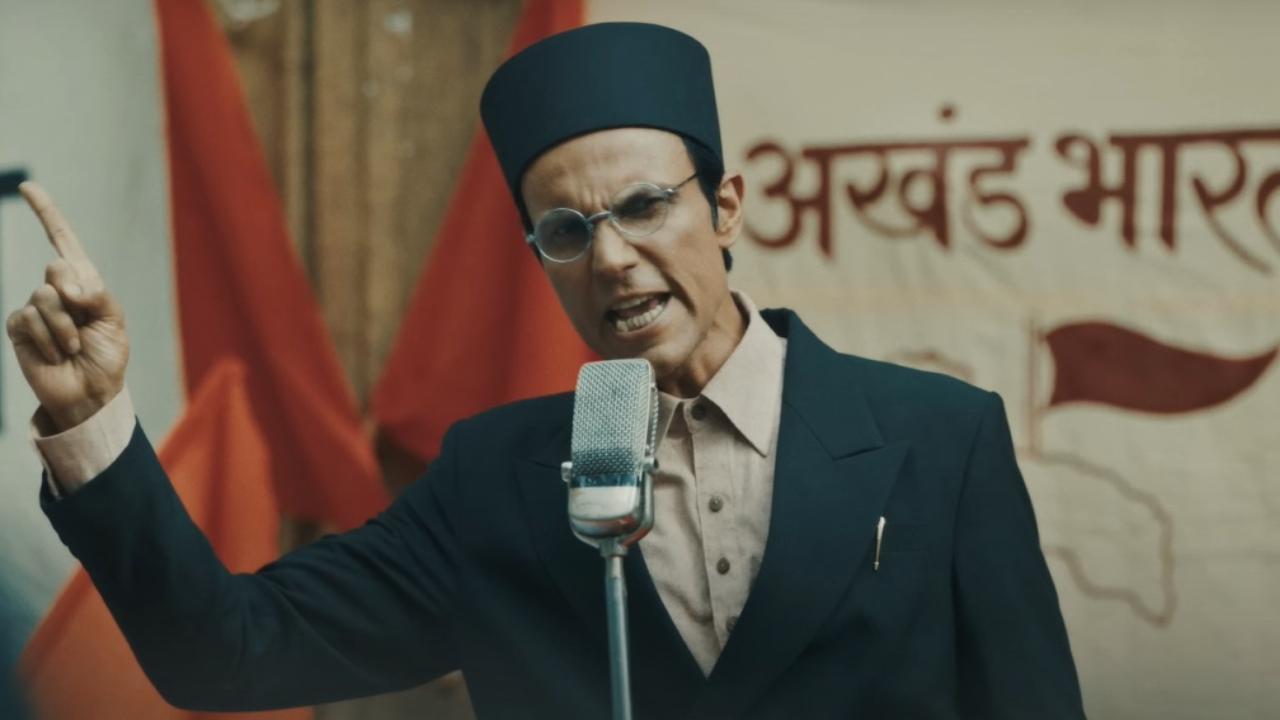'Swatantra Veer Savarkar' promises to be more than just a biopic; it's an epic and daring retelling of India's armed revolution for independence.

A still from Swatantra Veer Savarkar Pic/YouTube screenshot
‘Swatantra Veer Savarkar’, starring Randeep Hooda, Ankita Lokhande, and Amit Sial released in theatres on March 22. The film is a gripping biographical drama that delves into the unsung, unhonored revolutionary spirit of Vinayak Damodar Savarkar. As per Sacnilk.com, the film opened at over ₹1 crore in India on its first day at the box office. It managed to earn Rs 1.15 crore net.
At the film's trailer launch earlier this month, Randeep shared his views on Vinayak Damodar Savarkar and what the audience can expect from the film. "It is an anti-propaganda film. The film will bust all the propaganda against Veer Savarkar that has been going on for so many years. He was called 'maafiveer', 'kayar'...so with this film, we have tried to tell the truth to the audience," he said.
Randeep also underwent a drastic physical transformation for the role. He shed 30 kilos.
Swatantra Veer Savarkar
Directed by actor Randeep Hooda, who also plays the titular role. The film promises to be more than just a biopic; it's an epic and daring retelling of India's armed revolution for independence. The film encapsulates the journey and struggles of Freedom Fighter Swatantrya Veer Savarkar. The film also highlights the meeting between Mahatma Gandhi, and Veer Savarkar and the difference in their ideologies and approaches towards India's independence struggle. The film is produced by Zee Studios, Anand Pandit, Sandeep Singh, Randeep Hooda, and Yogesh Rahar while co-produced by Roopa Pandit, Sam Khan, Anwar Ali, and Panchali Chakraborty.
About Veer Savarkar
Vinayak Damodar Savarkar, commonly referred to as Veer Savarkar was born on May 28, 1883, in Bhagur. Regarded as one of the most influential freedom fighters, Savarkar was not only a lawyer but also an activist, writer, and politician. He gained prominence for his book "Hindutva: Who is a Hindu?", among several others authored by him. In 1911, Savarkar was sentenced to 50 years in the cellular jail of Andamans, also known as Kala Pani for revolting against the Morley-Minto reforms (Indian Councils Act 1909). After several mercy petitions that he would not participate in politics, he was released in 1924.
(With inputs from ANI)
 Subscribe today by clicking the link and stay updated with the latest news!" Click here!
Subscribe today by clicking the link and stay updated with the latest news!" Click here!










